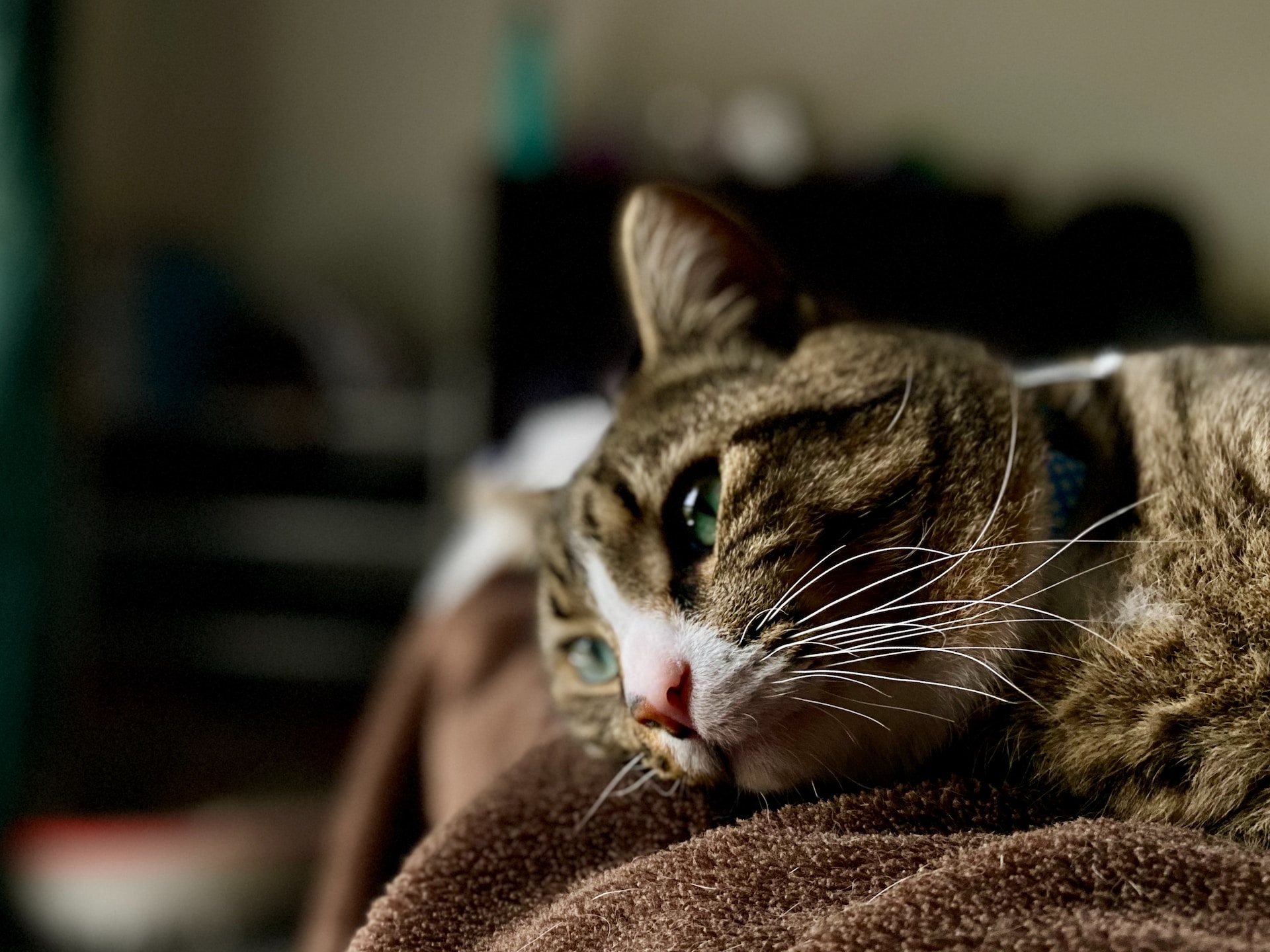
18 Aug When a Cat’s Mouth is on Fire: Understanding Stomatitis
One of the most painful and frustrating conditions to treat in cats is feline chronic gingivostomatitis (FCGS) also known as caudal stomatitis, faucitis, or just stomatitis. FCGS affects adult cats and results in inflammation of the soft tissues in the mouth, both the gums, and other areas like the inside of the cheeks and lips or around the back of the throat. Cats with stomatitis are in a lot of pain. They have difficulty eating and grooming. They have bad breath and may drool. Some cats will scream in pain when trying to swallow or yawn. They may growl, grimace, or paw at their mouth after opening it.
How do I know if my cat has FCGS?
Cats with FCGS can have enlarged mandibular lymph nodes, poor hair coats, and weight loss. They may be withdrawn or grumpy. Their blood work often shows elevations of globulins, which are proteins associated with inflammation. The soft tissues inside the mouth are inflamed and can enlarge, making it difficult to swallow. Sometimes, only the very back of the mouth is affected. The soft tissue inflammation can cause bone loss around the teeth or trigger tooth resorption. Affected cats may be missing teeth because they have fallen out or broken off.
What causes stomatitis?
Current thinking is that multiple factors may be involved, including viruses, bacteria, and an altered immune response. Stomatitis is more common in multi-cat households and there is anecdotal evidence that it is more common in warmer climates. The feline leukemia and feline immunodeficiency viruses (FeLV and FIV) can cause oral inflammation, but just because a cat has stomatitis doesn’t mean that they are more likely to test positive for FeLV or FIV. Feline calicivirus may be more common in cats with stomatitis.
While cats as young as 4-6 months can have severe gingivitis and/or periodontal disease, this is not the same thing as FCGS. Cats with juvenile gingivitis/periodontitis may have bad breath and inflamed gum tissue, but they are generally not showing signs of severe pain. It is important to get a correct diagnosis as the treatment recommendations are different for these diseases.
What are the treatment options?
The first line of treatment for cats with painful oral inflammation is to try to control the pain. This can be challenging because affected cats can be very difficult to medicate. Corticosteroids such as prednisolone can be very helpful in the short term but can have serious side effects and will lose effectiveness over time.
Surgical treatment for FCGS involves removing all of the cat’s premolars and molars and sometimes the canines and incisors as well. Most cats will have a complete resolution of symptoms after surgery. Removal of the teeth eliminates most of the surface area for bacteria-laden plaque because many of the teeth are themselves diseased. The sooner the teeth are extracted, the better the prognosis.
Cats without teeth can still eat just fine and many will still eat dry cat food if they like it. Some cats may continue to have painful oral inflammation after their teeth are extracted. These cats may need long-term medication to control their symptoms.
Why see a board-certified veterinary dentist ™ for FCGS?
While FCGS has been around for years, researchers are still trying to define the cause and best treatment options. Thankfully the UC Davis veterinary school is spearheading research about this disease with a dedicated clinic for cats with stomatitis.
UC Davis veterinary hospital debuts Stomatitis Clinic (dvm360.com)
UC Davis Veterinary Hospital Opens Stomatitis Clinic | School of Veterinary Medicine
Board-Certified Veterinary Dentist in Fort Collins, Colorado
In Fort Collins, Animal Dental Care & Oral Surgery offers the expertise of a board-certified veterinary dentist™ allowing for accurate diagnosis and treatment options tailored to your cat’s needs. We can safely perform full or partial mouth extractions while using the most advanced techniques for pain relief including long-acting local anesthetics. We stock recombinant feline omega interferon which has anti-viral and immune regulatory effects and can be prescribed for cats who continue to have symptoms after surgery.
As cat lovers ourselves, we know that every cat is unique, and we can help you find what treatments work best for you and your kitty. Coming soon, we will also be a site for clinical trials of a new type of stem cell therapy for cats with FCGS.
Follow us on social media for updates on this clinical trial. You can find us on Facebook and Instagram. Our goal is to help your feline friend get back to enjoying their life as soon as possible!
Images used under creative commons license – commercial use (8/18/2023). Photo by Tim King on Unsplash



